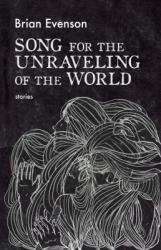
At the beginning of this year, one of my reading goals was to try a new genre. The short story genre is the genre I never new I needed until I read this book. The strength of short stories, in my opinion is the ability of the author to do a lot within a small amount of space; creating strong character development, great world building and meaningful messages within each story.
Within a few pages Everson manages to create character driven stories that are terrifying, full of paranoia and delusion and at the same time haunting and beautiful. From a girl without a face, to a therapist who never leaves his patience alone, to a film director willing to do anything to get the perfect final scene, these stories evoke a sense of fear and explores exactly what we will do to fulfill our most inhuman impulses. These stories provide a great introduction to a genre I now love. I can’t wait to see what else Everson does, he is definitely one to watch. Thank you to Eidelweiss and Coffee House press for the Digital Review Copy for review!
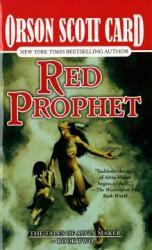
Continuing from the previous book in the Alvin Maker series, Red Prophet flashes back and shows certain events from a different point of view before driving forward into some fascinating alternate history. I continue to enjoy the fantastical elements brought into American history, even to the point of explaining how certain famous historical figures were the way they were. Although, if you know enough history, you’ll realize the fates of some of the characters presented in Red Prophet (William Henry Harrison, for instance) might not need the foreshadowing missing from this text.
While Seventh Son managed to set up this alternate history and establish some of its rules, Red Prophet delves into the action and excitement that comes from some of the more “kinetic” talents of these characters. Once the plot catches up with where Seventh Son left off, I was hooked. The interactions between Alvin and the Native Americans were quite interesting, and I found everything up until the climactic battle to be top-notch storytelling. Sure, it took a little while to get there, having to first set up the eponymous “Red Prophet” and his powers of observation, but it was worth it in the end.
My one qualm with this book lies in some of its more peculiar metaphor, allegory, and allusion. Near the end of the book, several scenes and sections feel entirely disjointed from the narrative. Perhaps they were to serve some “higher purpose” to lay out the moral of the story—or even the series as a whole. These scenes had characters who suddenly were ripped out of their normal behavior and put into a completely different context. And for what? To show that the history of the Native Americans is rich and varied while also infused with war and darkness? There had to be some other way to convey this than the way it was done here.
An action-packed follow-on to Seventh Son that gets a little too “heady” at times, I give Red Prophet 4.0 stars out of 5.
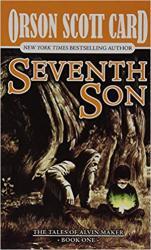
Having loved Orson Scott Card's Ender Saga, I decided to start into another of his series, Tales of Alvin Maker. I was used to his science fiction writing, so I thought it would be interesting to see how he handled semi-historical fiction. For the first book in a series, Seventh Son certainly has its strengths and weaknesses. It’s clear this book came on the heels of the Ender Saga, as there are a lot of parallels between characters and motifs that I just couldn’t ignore. Not that that’s necessarily a bad thing by any means.
While the history of colonial America is the setting of Seventh Son, the fantasy elements added to it made for an interesting read. I did appreciate the distinctive “good vs. evil” conflict between the Makers and the Unmaker, even if it’s a little too tried and true. At the very least, while the religious characters had some amount of strawman characterization set against them, they were well rounded enough not to make the whole story seem too anti-Christian. They weren’t necessarily the enemies, but their ignorance factored into the enemy’s tactics.
Perhaps the little snippets of American history sprinkled throughout this book were what intrigued me the most. Sure, the superstition and “magic” involved in creating an alternate timeline of history made quite a bit of sense. However, without at least a cursory knowledge of these events and historical figures, then readers could potentially miss a lot of substance. As with the Ender Saga, Card uses his writing to dive into different theologies and philosophies that do more than merely entertain. The fact that books like this can be thought-provoking through solid characters is a testament to his talent as a writer.
An adequate start to a series with plenty of potential, I give Seventh Son 4.0 stars out of 5.
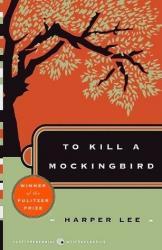
To Kill a Mockingbird, by Harper Lee, is a fantastic novel that examines the racism present in the South during the Great Depression. The book includes several remarkable instances of justice being served to the widespread prejudice present, which captures the reader. All of the character are well developed and serve well in their roles, especially the main protagonist. The entire setting is also intriguing and forms a solid foundation for the plot. Overall, I would recommend this book to anyone as it is a fascinating tale about Southern life.
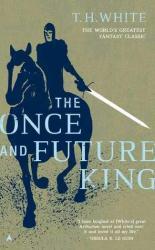
The Once and Future King, by T. H. White, is a great fantasy classic that is a retelling of the saga of King Arthur. The novel is stuffed with a mix of wonderful emotions that blend together to make a very unique fantasy story. The characters are all developed very well, especially the protagonist, and the plot fits them very well. The book has some very sorrowful scenes, but does a fantastic job of spacing them out with its humor. The only downside to the book is that it is for high-level readers.
If the story was put into a bit simpler language, it would relate to more people and reduce the amount of strain placed on the readers' mind while trying to interpret it. Overall, The Once and Future King is a great fantasy novel, but its use of complicated language takes away from the world it creates.
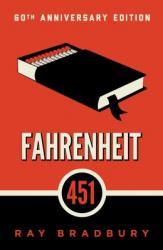
Guy Montag, a fireman who lives in the future where all books are banned, is required to burn them all. Guy then meets a strange girl who explains how books aren't so bad. He begins to spend more time with her and as more fire calls end up worse and worse, his point of view on books is eventually changed. Guy becomes a rebel to the fire company, as he tries to stand up to what is right. He later meets with an ex-professor who helps him generate a plan. Will he succeed? Read this book to find out. I would recommend this to anyone who wants to read about an alternate point of view on the future and readers who like technology as well as robots.
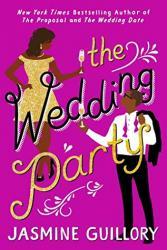
Maddie and Theo have known and disliked each other for a long time - as long as they've had the same best friend, the newly engaged Alexa Munroe. When they end up hooking up after Alexa's engagement party, it was unexpected for both of them to say the least. They both end up in the wedding party, and they know they will be thrown together more often. When they find themselves unable to resist a second hook-up, they put some rules into place, the chief one being that they'd only hook up until the wedding and then they'd go their separate ways forever.
If you read that synopsis and thought that you knew exactly where this book is headed, then you are correct! This is a very straightforward romance. What you see is what you get. I was expecting a little more. I thought it would be a comedy or maybe there would be some political commentary since our leads are both people of color but neither of those things were present. That said, I actually found the straight-up nature of this read to be surprisingly refreshing. I knew exactly what I was going to get and I got it. I didn’t learn anything new, and some aspects of the story were frustrating (for example, they don’t hate each other so much as tolerate each other with mild annoyance) , but all was resolved by the end. It was a good palate cleanser, and next time I don’t know what I’m in the mood for, I may pick up a Guillory book.
To be completely honest, I don’t read a ton of romance (which is how I would classify this book, perhaps mistakenly). If you like contemporary romance, I see no reason that you wouldn’t like this one – its a sexy read with believable characters and scenarios. 3 stars. Despite myself, I ended up kind of liking it.
Thanks to Netgalley and Berkley publishing for the advance copy which I got in exchange for an unbiased review. The Wedding Party will be available on 16 July, but you can put your copy on hold today!
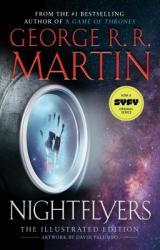
Those who are familiar with George R.R. Martin's Song of Ice and Fire fantasy series may be lamenting the end of the semi-faithful Game of Thrones television show. In the time we’ll all have to wait until the next Song of Ice and Fire book comes out, there are other little stories from this author to satiate our appetite. Nightflyers is a short novella by Martin that also seems to be hinging itself on the success of Game of Thrones, albeit in the science fiction genre instead of high fantasy.
Considering how verbose Martin can get with his works, it was almost refreshing to read a story that was so focused and short. Granted, even though Nightflyers is science fiction, all of the notable George R.R. Martin elements were present: mainly, sex and violence. Depending on your tolerance of these elements, I can say that they’re at least naturally integrated with this novella. Martin certainly seemed to have an adequate grasp of sci-fi to give this story a satisfying twist that drove the plot into the denouement.
Without giving too much away, I did appreciate the science (and pseudo-science) that was used to create an interesting story. Or, at least, the story was written in such a way—with a dash of horror sprinkled in to engage the reader—that prevented me from being bored with it. If it had been expanded out into a full-size book, I’m sure I could see where plenty of fluff could have been added in to reach the required word count. In the end, I’m glad that Martin kept this short, which works primarily to the story’s benefit.
A quintessential George R.R. Martin sci-fi novella, I give Nightflyers 4.0 stars out of 5.
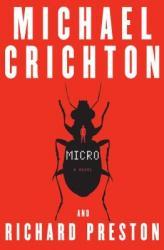
I liked Michael Crichton's writing. And what I mean by this is that I liked Jurassic Park (and to a lesser extent, The Lost World). Recently, I’ve been delving into a few of his other works, like Timeline and Micro. I understand that authors like Crichton excel in their genre—in this case, the technological thriller—but at what point does it just become the same old song and dance? Sure, I know a different author completed Micro and released posthumously. However, it mostly just felt like another re-hash of Jurassic Park mixed with Honey, I Shrunk the Kids (1989).
To Crichton’s credit, I feel his exploration of complex scientific principles in his writing are easy to understand and mostly accurate. For Micro, each bit of information that drove the plot seemed to make sense from a scientific standpoint. This was a plus considering how often the “shrink ray” sci-fi trope is done incorrectly. Of course, most places were pretty obvious where the science was being inserted since they didn’t necessarily flow as well as the other parts of the book.
My main qualm with Micro, aside from it containing all the standard Crichton tropes (e.g., “evil corporations”), is how the characters were practically indistinguishable from each other. The fact that they all primarily came from the same scientific laboratory and were thrust into the dangerous world of the microscopic didn’t help to keep track of who died and who lived. It was almost as if the author needed a large group of faceless characters to feed into the “drama” of trying to survive and return to standard size. None of their demises stuck with me other than being particularly grotesque and cringe-worthy.
A semi-unoriginal mashup of Jurassic Park and Honey, I Shrunk the Kids, I give Micro 3.0 stars out of 5.

Of the original Star Wars trilogy, Return of the Jedi has been my favorite for as long as I can remember. I enjoyed how there was some finality to the stories started back in A New Hope, and Empire Strikes Back. Plus, there were a ton of neat creatures (like the Rancor and Sarlacc) and machines (like the Speeder bikes and AT-STs) that grabbed my attention from a young age. Sure, I can understand the depth of Empire Strikes Back now that I’m an adult, but Return of the Jedi always holds that element of nostalgia for me.
So, how does the Shakespearean version of my favorite Star Wars story stack up? If anything, Shakespeare’s The Jedi Doth Return is consistent with its predecessors, Verily, a New Hope and The Empire Striketh Back . I enjoyed the voice acting and the little changes that made the audiobook more than just a Shakespearean reading of the screenplay. Of course, having listened to three books of this fantastic mashup, it has almost overstayed its welcome. Almost. I still think it’s a genius fusion of two pop culture masterpieces, but at what point does it lose its originality?
Sure, The Jedi Doth Return adds some new bits like songs (which land just about as well as the “added” songs in the 1997 Special Edition re-release). Overall, though, I was a little taken aback at how little dialogue there was in it. Most of the action was described either in chorus or soliloquy, which merely highlighted how much action was present in the original movie. This is great for an action-packed conclusion on the big screen, but it doesn’t land quite as well on the printed page (or audiobook). Despite this, I still think fans of either Star Wars or Shakespeare (or both) should give it a read.
Another consistently funny mash-up of archaic speech and futuristic sci-fi, I give Shakespeare’s The Jedi Doth Return 4.5 stars out of 5.

I can't believe I'm even saying this, but I really enjoyed this novel. It's about a tabloid reporter in Hollywood and is as vapid of a novel as you can probably imagine. Nonetheless, I found myself wanting to carve out time to read it. Much like cotton candy, it was empty calories but oh so good. Actually, while it starts out vapid, plot elements like friendships, romantic relationships, and family relationships are visited with surprising aplomb. Should I be reading the great American novel instead of this? Perhaps, but sometimes it's necessary to eat junk food to appreciate quality cuisine.
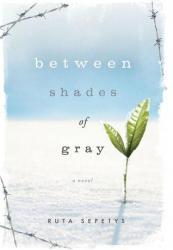
Taking place during WWII... Lina, a fifteen-year-old girl, lives a peaceful and normal life drawing and going to school but when the NKVD, better known as Soviet officers, force them to leave, adventure and chaos abduct Lina's normal lifestyle. Lina, her brother Jonas, and her mom Elena have to travel by train living with the bare minimum to survive off of. From Soviet officers forcing them to work to stealing food to survive, Lina has to find a way to outlast WWII and the capture of her family. Her main goal through all this; to find her dad. This dramatic adventure written by Ruta Sepetys will pull you off your seat.
Reviewer's Age: 15
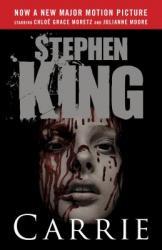
Have you ever wondered what it would be like to have telekinesis powers? Well ''Carrie'' by Stephen King is for you. ''Carrie'' follows the life of teenager Carrie White at her home and school. With the bullying at school and her fanatically pious mother, strange occurrences start happening around Carrie. She begins to suspect that she has supernatural powers. Invited to the prom by the empathetic Tommy Ross, Carrie tries to let her guard down, but things eventually take a dark and violent turn.
I chose to read ''Carrie'' because it is well planned and full of thoughtful writing and wit. It also shows the life of a un-respected teen in high school. I enjoyed the fact that ''Carrie'' used ''news reports'' shown earlier to the reader to for-shadow to what might happen later. ''Carrie'' was also written to take place in 1979. I also enjoyed how after the climax, the author provided how the town recovered from her wreckage. One point of the book that I felt was unnecessary was how the antagonist, Chris Hargensen planned revenge on Carrie. If you enjoy horror films or books, read or watch ''Carrie'' today!
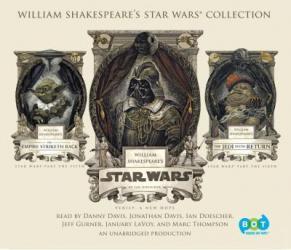
I said it for my review of Shakespeare’s Star Wars , and I’ll say it again: this combination of old verbiage and meter with popular science fiction is a match made in heaven. The follow-up to the first part of the original trilogy, Shakespeare’s The Empire Striketh Back continues to be an amusing exercise that anyone who loves Shakespeare and/or Star Wars will enjoy. Some consider Empire to be the best part of the original trilogy, and its adherence to the plot won’t disappoint. Additionally, the audiobook version continues to use music, sound effects, and voice acting to recreate an experience as close to the source material as possible.
While the audiobook did provide a robust experience of the text (especially the voice actors who recreated Han Solo and C-3PO’s speech patterns), the author’s explanation at the end made me realize there were some aspects that weren’t quite as clear as they would have been if I had just read the book normally. For instance, Yoda’s typically backward speech wasn’t as backward as I would have thought—mostly because the Shakespearean cadence sounds a little backward. Instead, Yoda spoke in haiku, which I’m sure would have been more evident if I was reading the words on the page.
As I mentioned above, Empire is the favorite of many Star Wars fans. However, I’m one of the rare few (like the author) who find Return of the Jedi to be their favorite of these first three films. Consequently, since this book held close to the original plot, it seemed to sag a little between the opening act on Hoth and the third act in Cloud City. At least the added soliloquies from ancillary characters like the AT-AT walkers, random Stormtroopers, and the dangerous creatures of the universe added in some humorous elements to the narrative that weren’t strictly canon.
A fantastic audiobook that still might require a read-through, I give Shakespeare’s The Empire Striketh Back 4.5 stars out of 5.
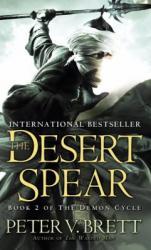
The second book in the Demon Cycle series, The Desert Spear practically proves my point that its predecessor, The Warded Man , started in the wrong place. In fact, if there weren’t an awesome battle sequence at the end of The Warded Man, I’d suggest just skipping to The Desert Spear since all the key moments from the first book were referenced in this sequel. That being said, this book has some of its own issues, some of which are gripes I continue to have about this series—which makes me think this is just the way these books are going to be.
Before I get too far down the criticism hole, I do want to say that I truly enjoy the magic system in these books. The Desert Spear doesn’t necessarily do anything new with it, but there’s at least a little more world building that happens in terms of the demons that I would have liked to see integrated more fully into the story. I like the idea of wards essentially being “computer programs” in a fantasy space, which is probably why I’ll continue to read this series. I’ll also say that the depth of the cultures presented in this book are top-notch and the action is expertly-described.
All this being said, there’s a lot of fluff in this book. The entire first third was practically a prologue to the meeting of the “desert” forces and the “forest” people, most of which could have easily been condensed. Even what I thought was a side story seemed to be only added as a way to integrate a short piece of essential plot near the end of the book. Despite being wordy, these moments were slightly necessary. Additionally, the “modern” sensibilities of Leesha are admirable for a woman in a fantasy setting but most of the time just pulled me out of the story because they didn’t necessarily match the timeframe where it was set.
A book that continues with great world building but in far too many words, I give The Desert Spear 3.5 stars out of 5.
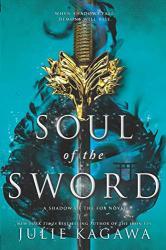
Soul of the Sword picks up directly at the end of the events of the first book in the series, Shadow of the Fox. If you haven’t read Shadow of the Fox, and you like Japanese mythology, what are you waiting for? Pick it up now! Also, skip this review, because spoilers.
If you liked the first book, you’ll like this one too. I did not remember the first book that well as I read it last summer, but Kagawa writes this in such a way that it’s easy for the reader to jump right back in. Most of our characters (save Tatsumi, because he’s mostly a demon now) get further development, and Yumeko in particular really seems to have grown a lot throughout the course of the book. My favorite character, the ronin Okame, has an exceptionally fun development. The worldbuilding, which was fantastic in the first book, continues to be alluring as Kagawa further fleshes out what was already a well-drawn world. The plot, like the first book, is fast-paced and while this is definitely something of a bridge book, it’s a bridge book that is really fun to read.
Readers of Rick Riordan who are looking for something a little more grown-up, or folks who like their fantasy to be steeped in mythology, you won’t go wrong with this series. I’m excited for the next one to come out. 4 stars – I really liked it!
Thanks to Harlequin Teen & Netgalley for the advance copy which I received in exchange for an unbiased review. Soul of the Sword will be available for purchase on 18 June or you can put your copy on hold today!
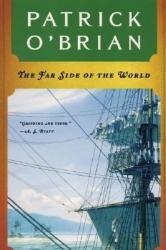
Nautical historical fiction is a rare genre for me to read. The last one I read—and that most people would be able to recognize—was Moby-Dick , and that was probably 15 years ago. Needless to say, I found myself in brief possession of The Far Side of the World and decided to give it a read. Of course, this was mostly because of the movie of the same name released in 2003 that earned many Oscar nominations (only winning in two). While the plot of both is slightly different in a few key areas, I wasn’t disappointed with having read this book.
First, as a historical look into the realms of sailing and whaling at the time, The Far Side of the World does a fantastic job of informing and educating the reader without necessarily resorting to huge exposition dumps. Sure, a few moments were a little obvious that the author was trying to get information across as quickly as possible, but these were rare. Secondly, this book seemed to include an exhaustive amount of problems that you’d encounter when sailing the seas. This meant that each page of each chapter had something the crew was trying to overcome, even if this seemed like a distraction at most times.
While the main thrust and driver of the plot of The Far Side of the World was clear from the start, my one qualm with this book was its inability to transition from one thought to the next. It sure had a steady pace, like a ship cutting through calm waters. Sometimes, though, the different topics would come in a choppy way that made me double back and re-read a page to make sure I didn’t miss some crucial transition (which were rarely there). Perhaps this adds to the realism of the “things happen without expecting them” element of sailing. Far too often, I found myself trying to figure out why this minor sub-plot mattered before it changed to something else entirely.
A thorough and steady-paced nautical historical fiction, I give The Far Side of the World 3.5 stars out of 5.
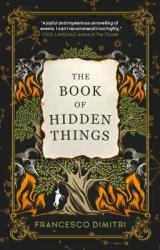
'The Book of Hidden Things' is a fantasy story of 4 friends Tony, Fabio, Art, and Mauro. These friends from a small town Casalfranca in Italy, make a pact to meet every year. When Art doesn't show up this year, Tony, Fabio, and Mauro decide to check what happened to him.
While they search for him, they learn mysterious information about Art, his life, his research, and things become more complicated and confusing. When Mauro gets fired by Art's ex-girlfriend, they all step back thinking about the risk they are taking to find Art. At last, Art shows up, reveals information about his research and forces them to trust him and take an important decision with their lives.
There are no words to explain how good this book is! The narration is very gripping and the mystery lingers till the end of the book and even after finishing the book. Characterization is simply superb. While Art is a unique character, Tony is a wonderful mate, Mauro, a responsible husband and friend who is guilty of leaving behind his favorite hobby of playing guitar and Fabio is a person with his insecurities and money problems.
I could get a glimpse of Southern Italy, the weather, the scenery, and the cuisine as well through this book. The book cover and the name are apt.
If you love mystery and fantasy, you will like this book. But, fantasy and mystery feel very real.
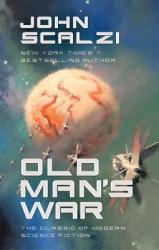
An excellent adult Sci-Fi novel in a future where to join humanity's military, the CDF, you must be 75 years old. Interesting takes on aliens, human interactions with other species, and combat. Be warned, there are sections of this book that go quite in depth about the background of certain story elements and they can seem long winded, but they all contribute to the story at large. Great read and hard to put down once you've found a little traction.
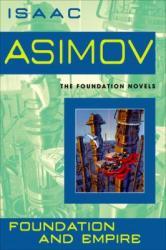
One of my qualms with the start of Isaac Asimov’s Foundation series was how different the stories were from each other. Each was set in the same universe but failed to have much of a cohesive narrative that tied them all together. While Foundation covered five different short stories, its sequel, Foundation and Empire managed to whittle this method of storytelling down to twonovellas. The result was a clear improvement in clarity and focus as each half of this book only covered a single plot each.
In Foundation and Empire, I finally was able to read a story that stuck with me in this series. Up until this point, I probably couldn’t tell you the premise of any of the short stories in Foundation, let alone the plot of the first half of this book. However, once this book transitioned over from topics that were more in line with science into ones that had a more fictional bend, I found the narrative to be much more enjoyable. It’s almost a shame that the whole book wasn’t an exploration of the universe presented in the second half.
Even if it took a book and a half for me to warm up to this series, I could honestly say that “The Mule” piqued my interest and will likely contribute to my continued reading of the Foundation series. This was probably because this particular half of the book introduced a clear antagonist to the story. It’s not that other stories in the series up until now didn’t have antagonists, it’s more that they weren’t an individual villain up until now. Now things are getting interesting!
A natural evolution of Foundation and an improvement on its predecessor, I give Foundation and Empire 3.5 stars out of 5.


